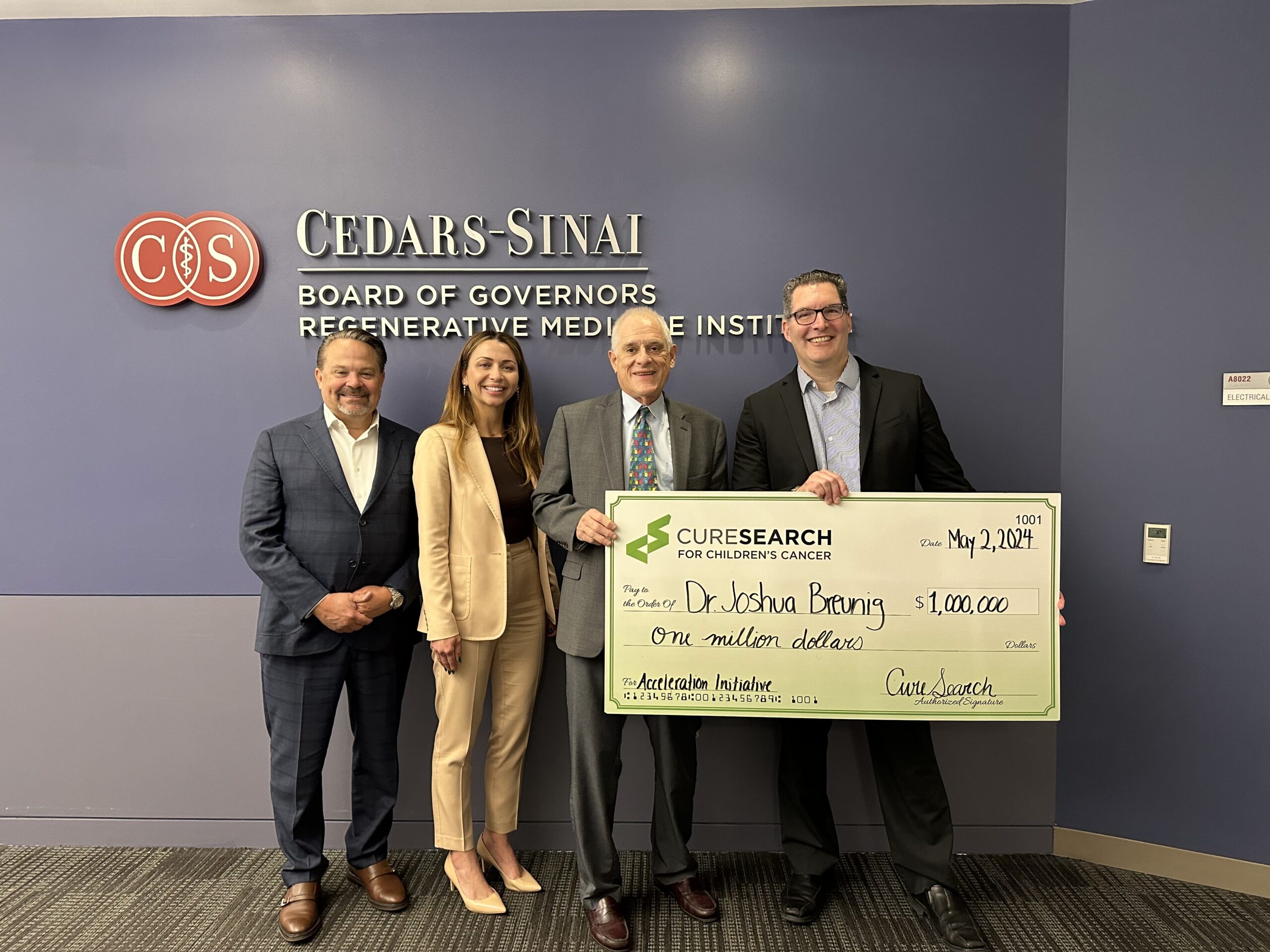
JOSHUA BREUNIG, PhD
Cedars-Sinai
CureSearch Acceleration Initiative Award: 2024
Focus: Pediatric glioma
Project title: Pre-clinical testing of a targeted metabolic therapeutic for G34R glioma
Addressing unmet needs in pediatric glioma drug development
Pediatric brain tumors are the most common solid tumors and the leading cause of cancer-related deaths in children 18 and under. Current therapies have a high risk of brain injury and serious long-term effects, illustrating the dire need for the development of safer, more effective treatments. However, development of newer and safer treatments is challenging due to the lack of relevant disease models in which to test their effectiveness.

About Dr. Breunig's novel research project
Joshua Breunig, PhD, is a CureSearch Acceleration Initiative Awardee at Cedars-Sinai in Los Angeles aiming to change the treatment landscape for children with brain tumors. Specifically, his work focuses on G34R-mutant pediatric diffuse glioma, an incurable brain tumor that develops in children and young adults. Dr. Breunig has developed a novel modeling system called MADR (Mosaic Analysis with Dual Recombinases), which allows for the creation of “personalized” brain tumor models down to the single cell level. Using MADR, Dr. Breunig has uncovered a key vulnerability in these tumors – the inability of the tumor to create the amino acid arginine, making it reliant on other sources of arginine for survival.
Arginine deiminase is an enzyme that converts arginine into citrulline and can be used to deprive tumor cells of their access to arginine, hindering their growth and promoting rapid cell death. ADI-PEG 20 is a version of this enzyme that is already in use in clinical trials, including for adult brain tumors, with a strong safety profile. In his CureSearch-funded work, Dr. Breunig proposes to use the MADR modeling platform along with matched human pediatric glioma tumor cell lines to test ADI-PEG 20 as a targeted therapeutic for pediatric glioma in combination with standard-of-care treatment. He believes that this approach will hinder tumor growth and lead to anti-tumor toxicity. Furthermore, the results of this study will lay the foundation for use of ADI-PEG 20 in clinical trials in pediatric patients, which are actively being planned, potentially leading to a new treatment option and increased survival for children affected with G34R-mutant glioma.
Research Update December 2024:
Dr. Breunig and his team remain ahead of their originally proposed timeline, having conducted preliminary studies in mice and shown increased survival in those treated with ADI-PEG20. Additionally, they have shown that combining ADI-PEG20 with current standard-of-care treatments, such as radiation and chemotherapy, is more potent than ADI-PEG20 alone. Importantly, there have been no adverse effects observed in mice treated with ADI-PEG20. Work on the proposed clinical trial, led by Dr. Tom Davidson, to test ADI-PEG20 in combination with standard-of-care treatments in children with brain tumors, including G34R mutant glioma, is nearing completion. Dr. Breunig’s preliminary findings on the safety and efficacy of ADI-PEG20 are crucial to the foundation of the trial, given the lack of preclinical research on this treatment, and are actively being used to assist in clinical trial design.
This Award comes at the perfect time in that it will enable our collaborative team to rapidly translate our discovery of this metabolic vulnerability into an optimized clinical trial by exploiting evidence-based pre-clinical experimentation.
- Dr. Joshua Breunig
